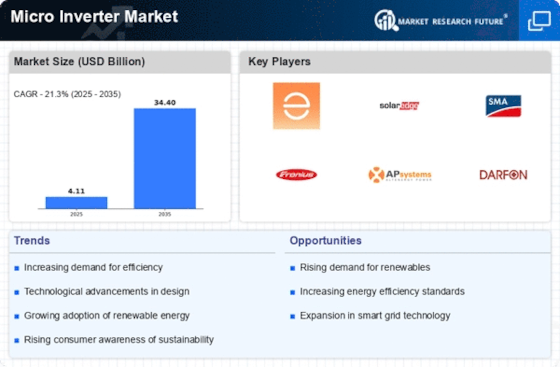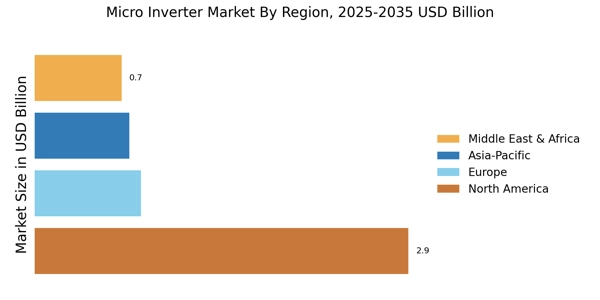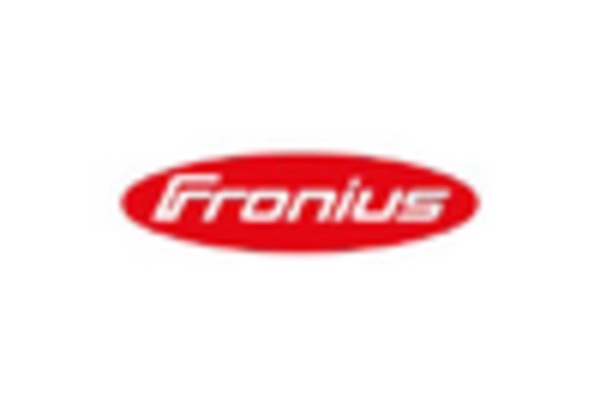Government Incentives and Policies
Government incentives and policies play a crucial role in shaping the Micro Inverter Market. Various countries have implemented favorable regulations and financial incentives to promote the adoption of renewable energy technologies, including solar power systems equipped with micro inverters. For instance, tax credits, rebates, and grants are often available for residential and commercial solar installations. These incentives can significantly reduce the upfront costs associated with solar energy systems, making them more accessible to a broader audience. As a result, the Micro Inverter Market is likely to benefit from these supportive measures, which encourage investment in solar technologies and drive market growth.
Expansion of Solar Energy Installations
The expansion of solar energy installations is a pivotal driver for the Micro Inverter Market. As solar energy becomes a more mainstream energy source, the demand for efficient inverter solutions is on the rise. Recent statistics indicate that solar installations have increased significantly, with millions of new systems being deployed annually. This trend is expected to continue, driven by decreasing costs of solar panels and increasing energy prices. Micro inverters, which enhance the performance of solar systems, are likely to see increased adoption as more consumers and businesses invest in solar energy. This expansion in solar installations will consequently bolster the growth of the Micro Inverter Market.
Increasing Demand for Energy Efficiency
The Micro Inverter Market is experiencing a notable surge in demand for energy-efficient solutions. As consumers and businesses alike seek to reduce energy costs and carbon footprints, micro inverters offer a compelling alternative to traditional inverter systems. These devices optimize the energy output of individual solar panels, thereby enhancing overall system efficiency. According to recent data, the energy efficiency of micro inverters can exceed 20% compared to conventional systems. This heightened efficiency not only appeals to environmentally conscious consumers but also aligns with governmental policies promoting renewable energy adoption. Consequently, the increasing demand for energy efficiency is likely to drive growth in the Micro Inverter Market.
Rising Awareness of Environmental Sustainability
The growing awareness of environmental sustainability is a driving force in the Micro Inverter Market. As climate change concerns escalate, individuals and organizations are increasingly motivated to adopt renewable energy solutions. Micro inverters, which enable more efficient solar energy utilization, align well with this sustainability ethos. The ability of micro inverters to maximize energy production from solar panels contributes to a reduction in greenhouse gas emissions. This heightened awareness is likely to encourage more investments in solar technologies, further stimulating the Micro Inverter Market as consumers seek to make environmentally responsible choices.
Technological Innovations in Micro Inverter Design
Technological innovations are transforming the Micro Inverter Market, leading to enhanced performance and reliability. Recent advancements in micro inverter design have resulted in improved efficiency, durability, and ease of installation. For example, the integration of smart technology allows for real-time monitoring and performance optimization, which can significantly enhance energy output. Furthermore, the development of more compact and lightweight designs facilitates easier installation and maintenance. As these innovations continue to emerge, they are expected to attract more consumers and businesses to adopt micro inverter systems, thereby propelling the growth of the Micro Inverter Market.
.png)
















